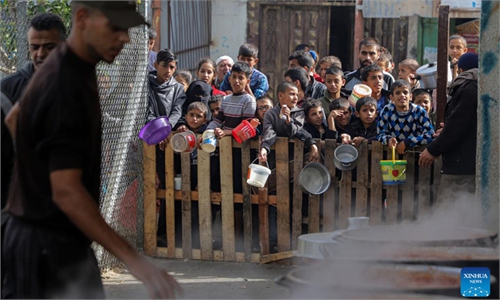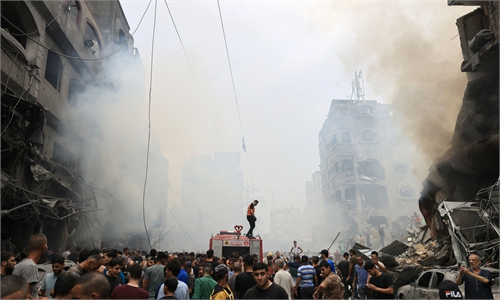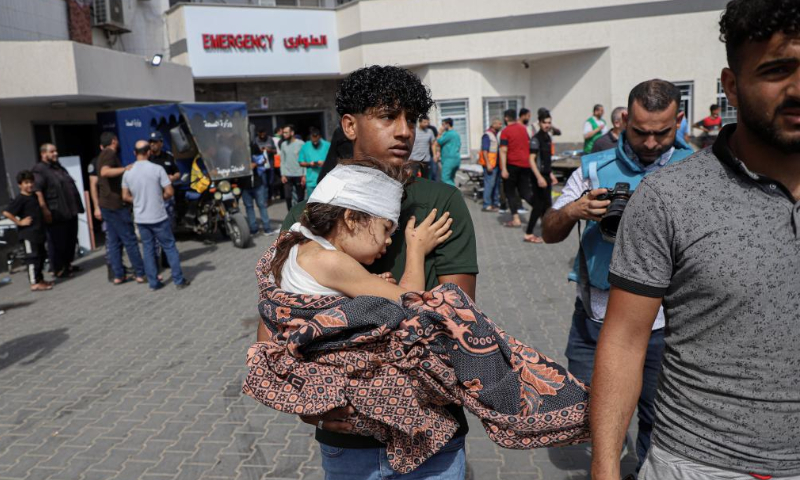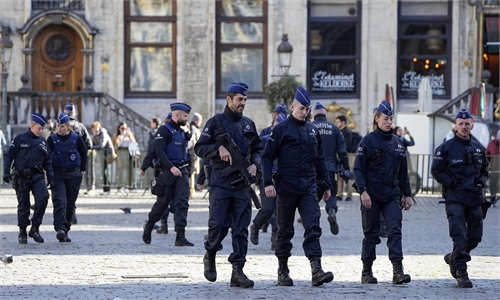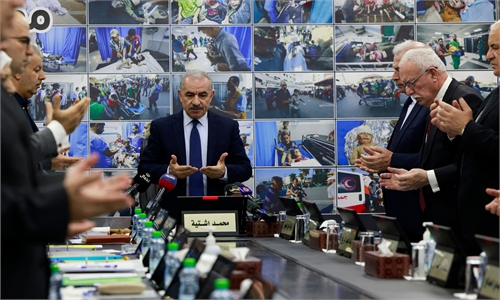It all started with former US president Donald Trump announcing in 2018 the plan to move the US Embassy from Tel Aviv to Jerusalem, which effectively means the US recognizes Jerusalem as the capital of Israel, a goal the latter has long sought.
The US' handling of this conflict has also added fuel to the fire on the ground. Although the US ultimately called Israel for a "humanitarian cease-fire" following pressure from the Arab world and the international community, it has already lost support internationally. The various diplomatic measures the US undertakes violate the morality of a major power and are closely related to its political system.
On the surface, this conflict was triggered by an attack on Israel by the Palestinian armed group Hamas, but the underlying reason is the accumulation of hatred and anger between the two sides as the Palestinian issue has not been resolved.
According to Resolution 181 (United Nations Plan for the Partition of the Mandate of Palestine) adopted by the United Nations General Assembly on Nov 29, 1947, the establishment of two temporary states was proposed, one being the Jewish state of Israel and the other the state of Palestine.
However, this resolution has never been implemented. Israel has not only occupied Palestinian land, but has also continued to expand and strengthen Israeli settlements on Palestinian land. It has implemented long-term blockades and violent suppression of Palestinians, causing Israel-Palestine conflicts to break out from time to time, and the grievances between the two sides to deepen.
Not only has the US failed to deal with the Palestinian issue seriously and fairly, it has instead favored and sheltered Israel. After Hamas launched the attack on Oct 7, the US Embassy in Jerusalem took the lead in tweeting condemnation of Hamas' attack, saying that the US was in touch with Israeli officials and fully supported Israel's "right to self-defense".
When US President Joe Biden met Israeli Prime Minister Benjamin Netanyahu on Oct 18, he actually expressed support for Israel's counterattack instead of trying to ease the situation. That emboldened Israel to launch ruthless military strikes against Palestine. Israel's large-scale air strikes, including those targeting refugee camps and hospitals in Gaza, have caused heavy casualties to the people of Gaza.
Some 30 years ago, the US had briefly acted as a "peace messenger" trying to resolve the Israel-Palestine issue. In 1993, the leaders of Israel and Palestine signed the Oslo Accords under the guidance of then US president Bill Clinton. Israel and Palestine recognized each other's legitimacy and agreed to end the violent conflict through a peace agreement. Israel withdrew from Gaza and parts of the West Bank. Both sides established a road map for peace in the Middle East. Unfortunately, the agreement was blocked by radical forces on both sides, and then Israeli prime minister Yitzhak Rabin was assassinated.
After the George W. Bush administration came to power, the US launched a war on terrorism because of the Sept 11 terrorist attacks. It completely abandoned Clinton's Middle East peace process, turned to unilateralism, and promoted neo-conservatism with the goal of overthrowing "hostile governments" such as in Iraq.
When Barack Obama became president, the US adopted a moderate policy toward the Middle East. The Joint Comprehensive Plan of Action, or JCPOA, signed by Obama eased relations with Iran. On the Israel-Palestine issue, the Obama administration criticized Israel's actions in the West Bank and expressed dissatisfaction with the construction of Jewish settlements.
Unfortunately, after Trump was elected president, the US returned to the unilateralism of the Bush era. Adhering to the Cold War mentality, in order to maintain its hegemony, it continued to form cliques and provoked conflicts, triggering serious political and economic problems around the world. The conflict between the two sides has made the situation in the Middle East unstable and the Israel-Palestine conflict continues to this day. It can be seen that the evolution of Israel-Palestine relations from peace talks, conflicts to wars is closely linked to the attitude of the US.- China Daily/Asia News Network.
Edward Wong is a researcher of Hong Kong Sustainable Development Research Institute. Ivan Chu is a member of the Chinese Association of the Hong Kong and Macao Studies.
Israel and Palestinian armed group Hamas have very limited mutual trust to execute the temporary cease-fire and a hostage release deal, so they need more time to solve technical problems, said experts on Thursday, as the Israeli side claimed that the truce will be delayed and no hostages will be released before Friday.


